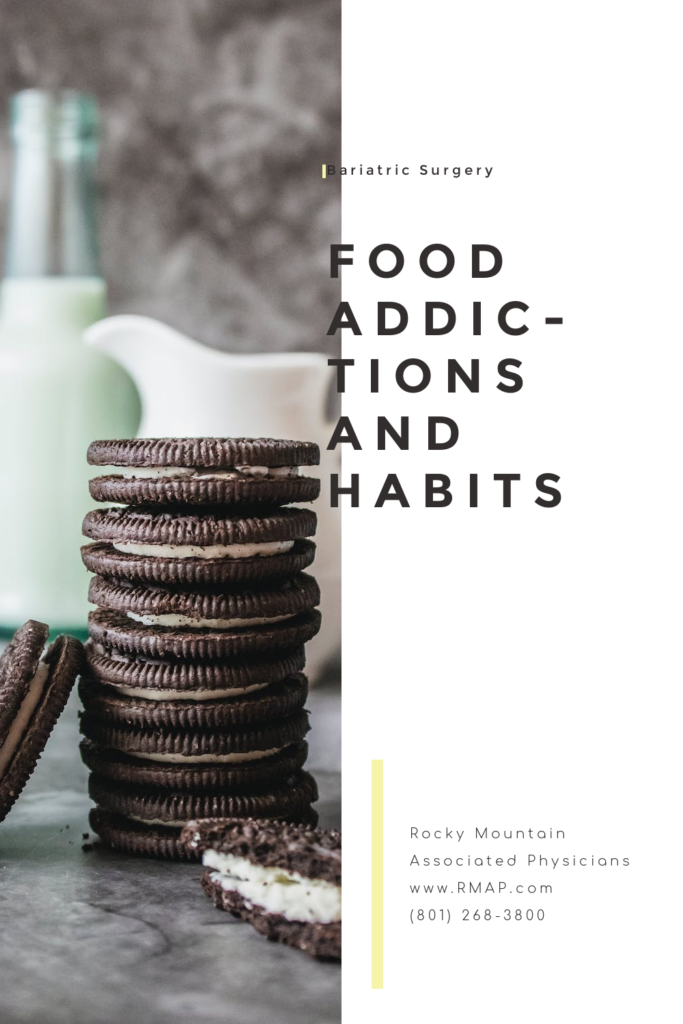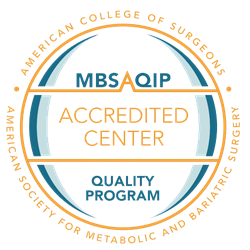
Learn more about weight loss surgery at Rocky Mountain Associated Physicians www.RMAP.com (801) 268-3800
It’s no secret that food is essential to human survival. Not only does it provide necessary sustenance, it can also be a gratification component of pleasure and enjoyment through many different tastes, smells, and textures. However, for many individuals, food can become a very serious addiction.
What is Food Addiction?
Food addiction (FA) is loosely defined as the eating behavior in which the consumption of highly palatable foods, such as foods high in salt, fat, and sugar, in quantities beyond homeostatic energy requirements.1 Food addiction is similar in symptoms with other eating disorders, such as binge eating. When foods high in fat and sugar are consumed, it triggers a chemical reaction in the brain that induces the feelings of pleasure and satisfaction.
A study led by Dr. Magalie Lenoir found that cocaine-addicted rats chose sugar when given the option to consume cocaine or sugar. 94% of the addicted rats showed a preference for sugar over cocaine.2 Dr. Lenoir concluded during the demonstration that, “intense sweetness can surpass cocaine reward, even in drug-sensitized and addicted individuals…The supranormal stimulation of [sweet] receptors by sugar-rich diets, such as those now widely available in modern societies, would generate a supranormal reward signal in the brain, with the potential to override self-control mechanisms and thus to lead to addiction.”
Physical and Mental Health Distress
It can be a complex ferocious cycle when we consume copious amounts of certain foods. It affects not only our physical health, but our mental health in ways we might not expect. We might experience guilt, shame, and disgust about our inability to control our eating habits and the foods we eat. When sugar is consumed, it causes a temporary rush of dopamine (hormone), which then is followed by a sugar crash, and in turn leads to more cravings. As mental health declines, another sugar fix is needed, angst and self-disgust sets in, and the vicious cycle continues.3
Signs and Symptoms of Food Addiction
- Eating food even when no longer hungry
- Eating in secret, isolation
- Going out of your way to obtain food, obsession
- Difficulty to function at work
- Decreased energy, chronic fatigue
- Spending significant amounts of money of foods
- Difficulty concentrating
- Sleeping habits change, such as insomnia or oversleeping
- Irritability
- Headaches
- Depression, low self-esteem
- Self-harm, suicidal ideations
- Digestive disorders
- Denial about an issue with food
Ways to Get Help
The only way to defeat the vicious cycle of food addiction is to get to the root cause of the problem. There are many outlets for help:
- Food Addicts in Recovery Anonymous (FA)
- Salt Lake Weight Counseling
- Utah Addiction Centers
- Weight Treatment Center at St. Mark’s Hospital
If you need help with food addiction, nutrition, or help with overcoming old habits, don’t feel ashamed to ask for help. We can give you referrals to dieticians and psychologists who can help! Give our office a call at (801) 268-3800.
Links to similar articles:
Tips to Help With Hunger
Hunger Between Meals
What is “Junk Food”
Strategies and Skills for Success
How Much Should I Be Eating?
www.RMAP.com
Rocky Mountain Associated Physicians
801-268-3800
1160 East 3900 South, Suite 4100
SLC, UT 84124
- https://www.sciencedirect.com/science/article/abs/pii/S0074774216301106 (Science Direct, Chapter Four – Psychological and Neurobiological Correlates of Food Addiction, E. Kalon, J.Y. Hong, C. Tobin, T. Schulte)
- https://journals.plos.org/plosone/article?id=10.1371/journal.pone.0000698 (PLOS ONE Journals, “Intense Sweetness Surpasses Cocaine Reward,” M. Lenoir, F. Serre, L. Cantin, S.H. Ahmed)
- https://www.ncbi.nlm.nih.gov/pmc/articles/PMC2235907/ (National Library of Medicine, “Evidence of Sugar Addiction: Behavioral and Neurochemical Effects of Intermittent, Excessive Sugar Intake,” N.M. Avena, P. Rada, B.G. Hoebel













 Address: 1521 East 3900 South STE 100
Address: 1521 East 3900 South STE 100 Office: +
Office: +  Fax number (801) 268-3997
Fax number (801) 268-3997 Email: info@rmapinc.com
Email: info@rmapinc.com



